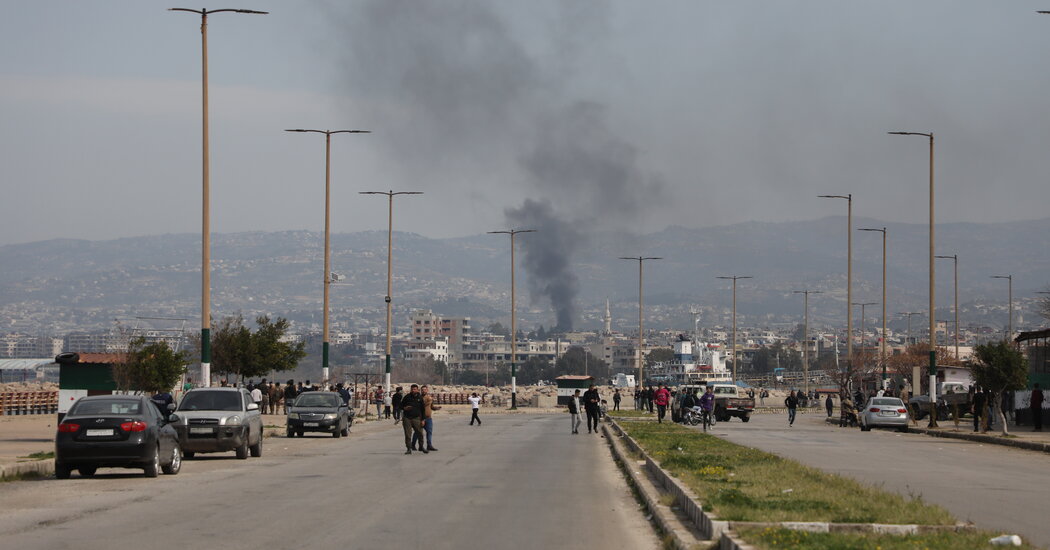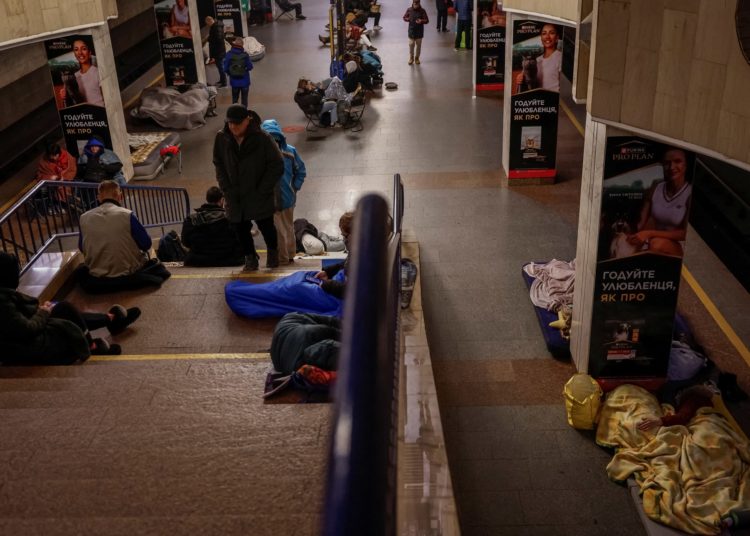Members of Syria’s government security forces and other armed groups likely committed war crimes during a deadly outbreak of sectarian violence in March, the United Nations reported on Thursday, providing the most detailed account yet of who perpetrated the massacres.
The report by the U.N.’s Independent International Commission of Inquiry on Syria examined the bloodshed in Syrian coastal communities, and laid bare how fragile peace is in the country since rebels toppled the dictator Bashar al-Assad in December. Around 1,400 people, mostly civilians, were killed in the violence, according to the report. That death toll is largely consistent with the government’s own figures and those of monitoring groups.
U.N. investigators found no evidence that Syria’s central government directed its forces to commit the violations. The government has denied accusations that its military commanders ordered any attacks on civilians, and pledged to hold accountable any members of its own security forces who took part in the slaughter.
The violence in March broke out after groups loyal to the ousted Assad government ambushed security forces with the new government. Clashes ensued between the Assad loyalists, mostly members of the Alawite sect of Islam, and the largely Sunni Muslim government forces. Tens of thousands of ex-rebel fighters and other armed civilians converged on the Mediterranean coast in support of the new government.
The fighting quickly devolved into revenge attacks primarily targeting civilians from the Alawite minority, the group that dominated Syria’s elite circles during the Assad family’s decades-long dictatorship. Many Sunni fundamentalists consider the Alawites, who practice an offshoot of Shiite Islam, to be heretics.
The U.N.-backed commission found that, during the turmoil, members of government forces and allied groups committed “widespread and systematic” violence against civilians, including raiding houses in Alawite-majority areas, singling out Alawite men and killing them.
The commission found that members of Turkish-backed rebel factions that are now part of the new Syrian army likely participated in the attacks on civilians. Former members of the rebel group led by President Ahmed al-Shara, Hayat Tahrir al-Sham, who now serve in the government’s security forces, were also likely involved, the report found.
Armed groups affiliated with the Assad government also committed violent acts that likely amount to war crimes, according to the report.
“The scale and brutality of the violence documented in our report is deeply disturbing,” said Paulo Sérgio Pinheiro, Chair of the Commission, who called on Syria’s new authorities to expand their existing efforts to arrest those suspected of being involved in the attacks. The government has arrested at least 37 people who were involved in attacks against civilians, the head of the government’s fact-finding committee on the violence, Jumaa al-Anzi, said in a news conference last month.
The massacres in March were the first major outbreak of sectarian violence in Syria since a coalition of Islamist rebels, led by Mr. al-Shara, ousted the Assad government and took power. His new government was in the midst of trying to create a new national army out of the many rebel factions that were part of his coalition.
The commission determined that there was no evidence that Syria’s new central government had a “policy or plan” to target Alawites.
The violence on the coast stoked fears among Syria’s minorities that — despite Mr. al-Shara’s pledges to govern inclusively and provide security to all Syrians — the new Islamist government was unable or unwilling to protect them from extremist groups, and was not fully in control of its own forces.
Syrian Foreign Minister Asaad al-Shibani said in a letter responding to the U.N. report that Syria’s new authorities take “serious note of the alleged violations” detailed in the commission’s investigation. He added that the commission’s recommendations, which included enhanced screening for those joining the country’s security forces, “will serve as a road map for Syria’s continued progress.”
The report was released in the wake of another deadly bout of sectarian violence that seized southern Sweida Province last month. The violence in the south pitted government forces and armed Bedouin groups against militias from the Druse, a religious minority that practices an ancient offshoot of Shiite Islam.
More than 1,000 people were killed, mostly fighters and civilians from the Druse minority, according to monitoring groups. Tens of thousands of Druse and Bedouin civilians have been displaced.
Reham Mourshed contributed reporting.
Christina Goldbaum is the Afghanistan and Pakistan bureau chief for The Times, leading the coverage of the region.
The post Violence on Syrian Coast Likely Amounts to War Crimes, U.N. Says appeared first on New York Times.




